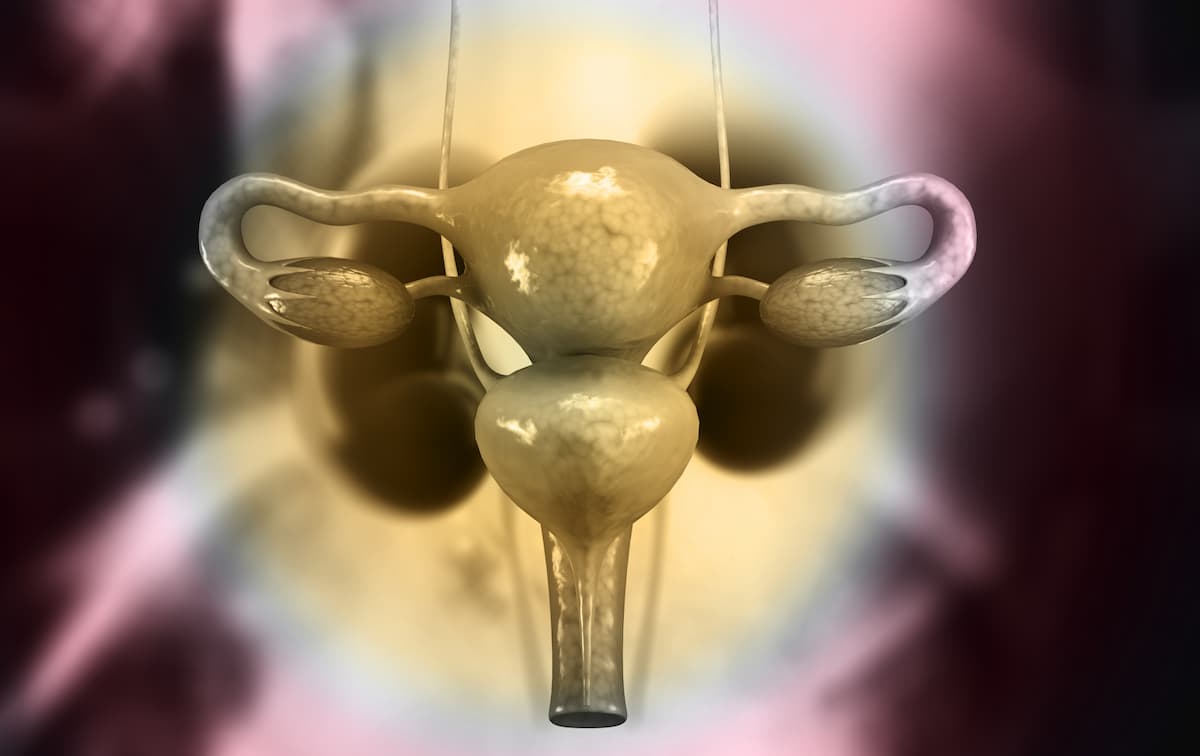Olvi-Vec Induces Promising Response in Advanced Ovarian Cancer
Olvimulogene nanivacirepvec virotherapy plus chemotherapy with or without bevacizumab produces a manageable safety profile in platinum-resistant or platinum-refractory ovarian cancer in the phase 2 VIRO-15 trial.
“The findings of this nonrandomized clinical trial suggest that Olvi-Vec and platinum-based chemotherapy with or without bevacizumab demonstrated promising ORR and PFS, and clinical reversal of platinum resistance and refractoriness, with manageable toxic effects among patients with [platinum-resistant or platinum-refractory ovarian cancer],” the study authors stated.

Treatment with olvimulogene nanivacirepvec (Olvi-Vec) virotherapy in combination with platinum-based chemotherapy with or without bevacizumab (Avastin) produced promising responses and survival in patients with platinum-resistant or platinum-refractory ovarian cancer, according to findings from the phase 2 VIRO-15 trial (NCT02759588).
Among 24 evaluable patients, the objective response rate (ORR) per RECIST v1.1 criteria was 54% (95% CI, 33%-74%), and the confirmed ORR was 42%. Additionally, the median duration of response (DOR) was 7.6 months (95% CI, 3.7-9.6), and the disease control rate (DCR) was 88% (95% CI, 68%-97%). Overall, 86% of patients experienced tumor shrinkage.
Per the cancer antigen 125 (CA-125) assay, the ORR in the overall population was 85% (95% CI, 65%-96%), and 96% of patients experienced decreased CA-125 levels. Additionally, the median progression-free survival (PFS) was 11.0 months (95% CI, 6.7-13.0), and the 6-month PFS rate was 77%. The median overall survival (OS) was 15.7 months (95% CI, 12.3-23.8).
Olvi-Vec was designed as a modified oncolytic vaccinia virus that selectively infects malignant cells, and is easily replicable in ovarian and lung cancers.
“The findings of this nonrandomized clinical trial suggest that Olvi-Vec and platinum-based chemotherapy with or without bevacizumab demonstrated promising ORR and PFS, and clinical reversal of platinum resistance and refractoriness, with manageable toxic effects among patients with [platinum-resistant or platinum-refractory ovarian cancer],” the study authors stated.
In the phase 2 VIRO-15 trial, investigators assessed the anti-tumor activity and safety of intraperitoneal Oli-Vec virotherapy plus chemotherapy with or without bevacizumab in patients with platinum-refractory or platinum-resistant ovarian cancer from September 2016 to September 2019. Patients received 3 x 109 plague-forming units of Oli-Vec per day for 2 days followed by platinum-chemotherapy selected from gemcitabine, taxane, or pegylated liposomal doxorubicin (PLD) coupled with carboplatin or cisplatin. Patients were also allowed to receive bevacizumab with platinum-doublet or single-agent therapies.
The primary end points were ORR and PFS. Secondary end points included safety, DOR, DCR, and OS.
Patients with an ECOG performance status of 0 or 1 and documented disease progression at screening were eligible for enrollment on the trial. Patients were unable to enroll if they had mucinous carcinoma, nonepithelial ovarian cancers, and unresolved bowel obstruction.
Overall, 27 patients received study treatment, including 14 with platinum-resistant disease and 13 with platinum-refractory disease. The most common nonplatinum chemotherapy agents included gemcitabine (44%), docetaxel (26%), paclitaxel (15%), and PLD (15%). Additionally, 23 patients initiated treatment with bevacizumab plus platinum-based therapies.
Among patients with platinum-resistant disease, the ORR per RECIST v1.1 criteria was 55% (95% CI, 26%-84%) and 85% (95% CI, 55%-98%) per CA-125 evaluation. Additionally, the median DOR was 7.6 months (95% CI, 3.7-not applicable [NA]), and the DCR was 100% (95% CI, 72%-100%). The median PFS in this population was 10.0 months (95% CI, 6.4-NA), and the median OS was 18.5 months (95% CI, 11.3-23.8).
Among those with platinum-refractory disease, the ORR was 54% (95% CI, 27%-81%) per RECIST v1.1 criteria and 85% (95% CI, 55%-98%) by CA-125 evaluation. The median DOR was 8.0 months (95% CI, 3.7-NA), and the DCR was 77% (95% CI, 46%-95%). Additionally, the median PFS was 11.4 months (95% CI, 4.3-13.2), and the median OS was 14.7 months (95% CI, 10.8-33.6).
The most common treatment-related adverse effects (TRAEs) of any grade included pyrexia (63%), abdominal pain (51.9%), and nausea (48.1%). Fever, chills, myalgia, and other flu-like symptoms were mainly transient overnight. Investigators administered hydration prophylactically or as needed throughout the study treatment to reduce symptoms.
“These hypothesis-generating results warrant further evaluation in a larger confirmatory study,” the study authors concluded. “The prospective phase 3 OnPrime/GOG-3076 study [NCT05281471] is currently enrolling.”
Reference
Holloway RW, Mendivil AA, Kendrick JE, et al. Clinical activity of olvimulogene nanivacirepvec–primed immunochemotherapy in heavily pretreated patients with platinum-resistant or platinum-refractory ovarian cancer: the nonrandomized phase 2 VIRO-15 clinical trial. JAMA Oncol. Published online May 25, 2023. doi:10.1001/jamaoncol.2023.1007